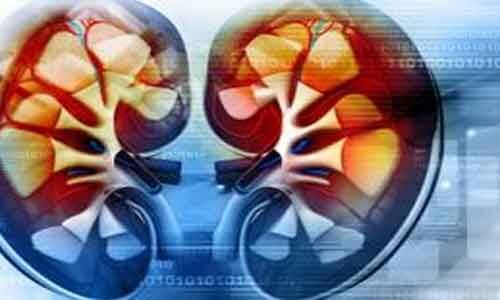- Home
- Medical news & Guidelines
- Anesthesiology
- Cardiology and CTVS
- Critical Care
- Dentistry
- Dermatology
- Diabetes and Endocrinology
- ENT
- Gastroenterology
- Medicine
- Nephrology
- Neurology
- Obstretics-Gynaecology
- Oncology
- Ophthalmology
- Orthopaedics
- Pediatrics-Neonatology
- Psychiatry
- Pulmonology
- Radiology
- Surgery
- Urology
- Laboratory Medicine
- Diet
- Nursing
- Paramedical
- Physiotherapy
- Health news
- Fact Check
- Bone Health Fact Check
- Brain Health Fact Check
- Cancer Related Fact Check
- Child Care Fact Check
- Dental and oral health fact check
- Diabetes and metabolic health fact check
- Diet and Nutrition Fact Check
- Eye and ENT Care Fact Check
- Fitness fact check
- Gut health fact check
- Heart health fact check
- Kidney health fact check
- Medical education fact check
- Men's health fact check
- Respiratory fact check
- Skin and hair care fact check
- Vaccine and Immunization fact check
- Women's health fact check
- AYUSH
- State News
- Andaman and Nicobar Islands
- Andhra Pradesh
- Arunachal Pradesh
- Assam
- Bihar
- Chandigarh
- Chattisgarh
- Dadra and Nagar Haveli
- Daman and Diu
- Delhi
- Goa
- Gujarat
- Haryana
- Himachal Pradesh
- Jammu & Kashmir
- Jharkhand
- Karnataka
- Kerala
- Ladakh
- Lakshadweep
- Madhya Pradesh
- Maharashtra
- Manipur
- Meghalaya
- Mizoram
- Nagaland
- Odisha
- Puducherry
- Punjab
- Rajasthan
- Sikkim
- Tamil Nadu
- Telangana
- Tripura
- Uttar Pradesh
- Uttrakhand
- West Bengal
- Medical Education
- Industry
Bicarbonate pre hydration before contrast CT may not confer renal safety in CKD: JAMA

Netherlands: Withholding short bicarbonate prehydration in patients with stage 3 chronic kidney disease (CKD) undergoing contrast-enhanced computed tomography does not compromise renal safety, according to findings from the Kompas trial.
Findings, published in the journal JAMA Internal Medicine, suggests that it is safe to omit pre hydration with 1-hour sodium bicarbonate infusion in patients with stage 3 CKD undergoing elective contrast-enhanced computed tomography.
Prevention of postcontrast acute kidney injury in patients with stage 3 CKD by means of prehydration has been standard care for years. However, evidence for the need for prehydration in this group is limited. Rohit J. Timal, Department of Cardiology, Leiden University Medical Center, Leiden, the Netherlands, and colleagues aimed to assess the renal safety of omitting prophylactic prehydration prior to iodine-based contrast media administration in patients with stage 3 CKD.
The Kompas trial was a multicenter, noninferiority, randomized clinical trial conducted at 6 hospitals in the Netherlands. In the trial, 523 patients with stage 3 CKD were randomized in a 1:1 ratio to receive no prehydration or prehydration with 250 mL of 1.4% sodium bicarbonate administered in a 1-hour infusion before undergoing elective contrast-enhanced computed tomography from April 2013 through September 2016. The final follow-up was completed in September 2017. Data were analyzed from January 2018 to June 2019.
In total, 262 patients were allocated to the no prehydration group and 261 were allocated to receive prehydration. Analysis on the primary endpoint was available in 505 patients (96.6%).
The primary endpoint was the mean relative increase in serum creatinine level 2 to 5 days after contrast administration compared with baseline (noninferiority margin of less than 10% increase in serum creatinine level). Secondary outcomes included the incidence of postcontrast acute kidney injury 2 to 5 days after contrast administration, mean relative increase in creatinine level 7 to 14 days after contrast administration, incidences of acute heart failure and renal failure requiring dialysis, and health care costs.
Key findings of the study include:
- Of 554 patients randomized, 523 were included in the intention-to-treat analysis.
- The median (interquartile range) age was 74 (67-79) years; 336 (64.2%) were men and 187 (35.8%) were women.
- The mean (SD) relative increase in creatinine level 2 to 5 days after contrast administration compared with baseline was 3.0% (10.5) in the no prehydration group vs 3.5% (10.3) in the prehydration group (mean difference, 0.5).
- Postcontrast acute kidney injury occurred in 11 patients (2.1%), including 7 of 262 (2.7%) in the no prehydration group and 4 of 261 (1.5%) in the prehydration group, which resulted in a relative risk of 1.7.
- None of the patients required dialysis or developed acute heart failure.
- Subgroup analyses showed no evidence of statistical interactions between treatment arms and predefined subgroups.
- Mean hydration costs were €119 (US $143.94) per patient in the prehydration group compared with €0 (US $0) in the no prehydration group.
- Other health care costs were similar.
"The findings of this study support the option of not giving prehydration as a safe and cost-efficient measure" concluded the authors.
The study, "Effect of No Prehydration vs Sodium Bicarbonate Prehydration Prior to Contrast-Enhanced Computed Tomography in the Prevention of Postcontrast Acute Kidney Injury in Adults With Chronic Kidney Disease: The Kompas Randomized Clinical Trial," is published in the journal JAMA Internal Medicine.
Dr Kamal Kant Kohli-MBBS, DTCD- a chest specialist with more than 30 years of practice and a flair for writing clinical articles, Dr Kamal Kant Kohli joined Medical Dialogues as a Chief Editor of Medical News. Besides writing articles, as an editor, he proofreads and verifies all the medical content published on Medical Dialogues including those coming from journals, studies,medical conferences,guidelines etc. Email: drkohli@medicaldialogues.in. Contact no. 011-43720751


